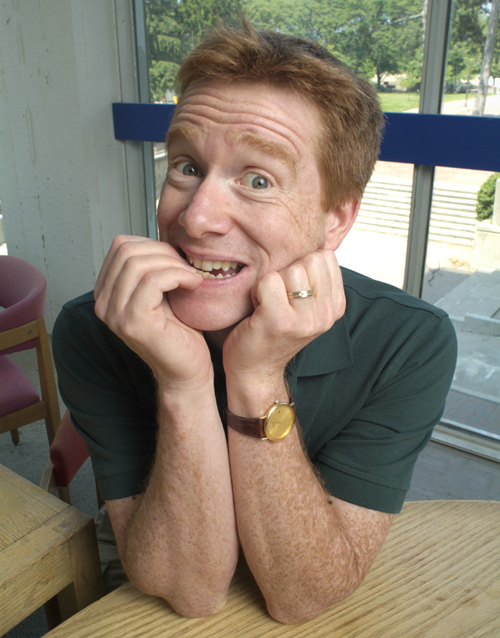
“I’ve yet to meet someone who doesn’t have at least one bad habit,” says psychology professor Ian Newby-Clark.
Whether it’s biting your nails, snacking on potato chips or blurting out comments at inappropriate times, we all seem to have something. And there’s a reason for that, says Newby-Clark. “A habit is a behaviour that you do on a regular basis in a less-than-deliberate manner. You’re almost on automatic pilot. Many habits are good, and once they become a habit it’s helpful because they make lower demands on our brains. We do them almost without thinking.”
But while good habits make our lives easier, bad ones can be tough to eradicate, he adds. “Bad habits have a short-term benefit but a long-term cost. So if you snack on junk food while watching TV, without really noticing, you enjoy the short-term benefit of the enjoyable taste and relaxation, but there will be a long-term cost.”
People wanting to get rid of their bad habits may look for help on the Internet or other self-help resources, but many of those are not really “on the mark,” says Newby-Clark. He started a “Bad Habits” blog three years ago to share his knowledge with others trying to kick a habit. “It’s a unique scientifically based perspective,” he says. “I can write it in an accessible way and share information with people in a way they can understand.”
While his goal has been to help others, he admits “it’s fun. And I don’t get reviewed.”
The blog’s been so popular ─ he has more than 70,000 readers and more than 1,000 subscribers ─ that he was asked to start blogging for Psychology Today in 2009.
“With two blogs to maintain, it does keep me busy,” he says. “The bonus is that people contact me and comment on what I write, and that’s always interesting. I’ve realized that more people have read my blogs than will ever read my scientific research.”
Why so much interest? Because getting rid of bad habits is hard.
“Habits exist because it’s extremely useful not to have to engage your brain to do something you have to do repeatedly,” says Newby-Clark. “But that means you have to engage in an effortful process to stop doing it.”
He does have some suggestions for those who want to quit a bad habit:
- One at a time ─ “Given that habits are so ingrained and take so much effort to change, you’ll have better luck if you just try to change one thing at a time,” he says.
- Aim low ─ Newby-Clark admits this may not sound like the most positive approach, but he says having too high a goal can really backfire. “You’ll get frustrated and give up.” Instead, he suggests setting a concrete and measurable goal that is reasonably achievable. You can always set a more demanding goal once you’ve reached the first one.
- Make a mini-plan ─ “A mini-plan means you set out the steps that you want to follow, instead of falling back into your habit,” he says. If your habit has been to get home from work, sit on the couch and eat some less-than-healthy snacks while you watch TV, you could make a mini-plan that you will put your gym bag by the front door before leaving for work; then when you get home, you will pick it up and drive to the gym.
- Be prepared for setbacks ─ Don’t be surprised when you backslide and fall back into that bad habit you’re trying to quit, advises Newby-Clark. Since habits are so tough to break, setbacks should be expected. “The only response is to dust yourself off and try again.”
- Persistence, persistence, persistence ─ “That’s really the key. If you want to replace your old bad habit with a new positive habit, you have to keep repeating it often enough and long enough that it becomes engrained.”
While Newby-Clark continues to keep up with research on bad habits and their cures, he’s also studying some new areas. “Currently I’m looking at individual differences in people’s ability to exert control over themselves and links between these differences and problem gambling.” Another area he’s studying involves situations where people hurt other people’s feelings but are unaware of what they’ve done. This is related to some recent research on guilt by association ─ situations where someone’s friend behaves badly and the first person believes others will judge him or her based on the friend’s behaviour.
From his findings, Newby-Clark says: don’t worry. Other people aren’t really thinking badly about you because your friend is acting up.